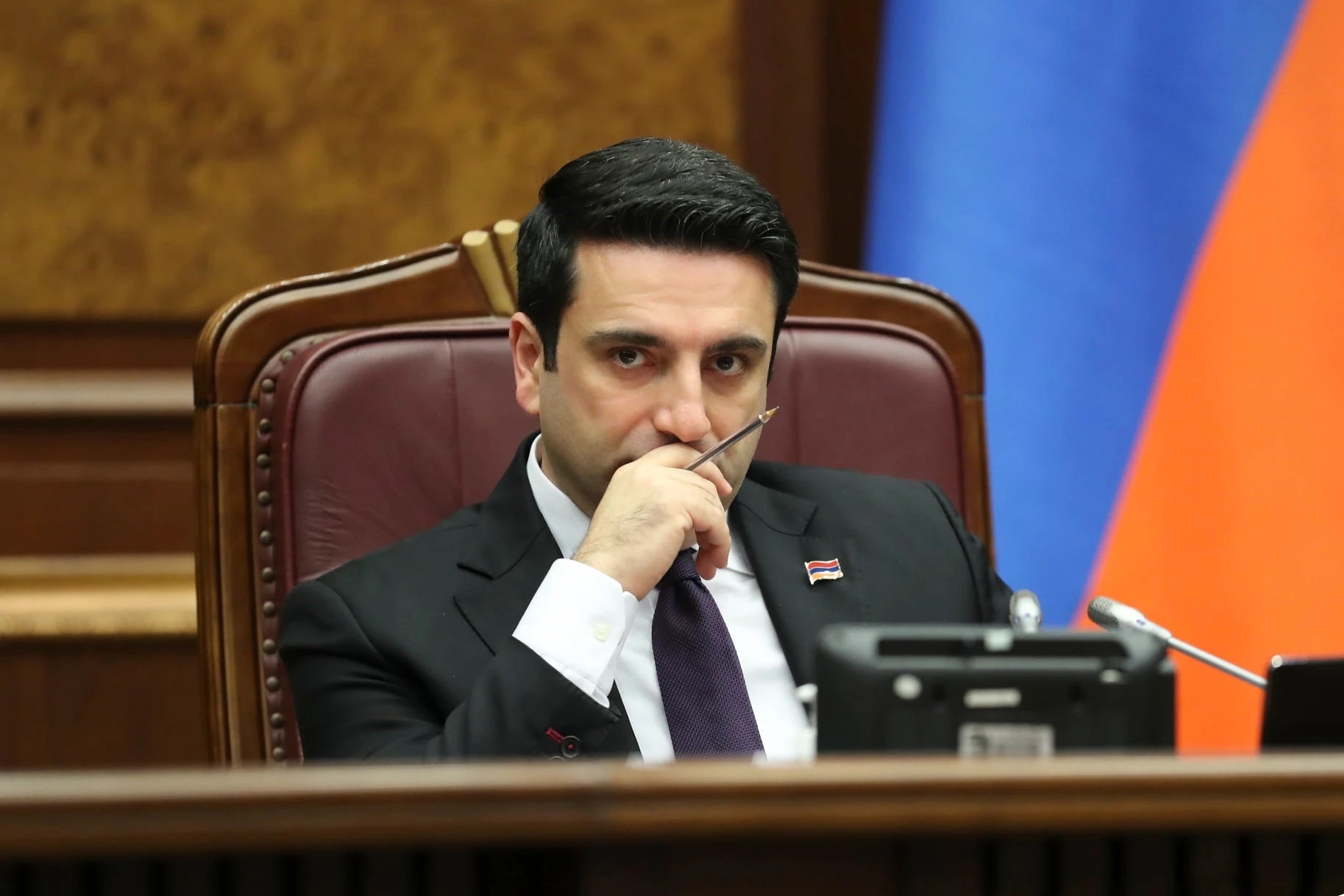On May 27, Armenia’s Parliament Speaker Alen Simonyan sought to explain Azerbaijani President Ilham Aliyev’s ongoing use of the term “Western Azerbaijan” to describe much of Armenia’s territory, linking it to the activities of Artsakh’s (Nagorno-Karabakh) exiled leadership now based in Armenia.
Last week, Aliyev renewed his demand for Yerevan to ensure the return of Azerbaijanis who lived in Armenia until the late 1980s, along with security guarantees for them.
Armenian officials, including Foreign Minister Ararat Mirzoyan, have previously described such remarks as territorial claims against Armenia.
However, Simonyan offered a different interpretation, suggesting that Aliyev is reacting to actions by the Artsakh leadership.
“He tries to do the same things that he thinks we did against Azerbaijan,” Simonyan told reporters. “We, on our part, make territorial demands to them when Karabakh’s representatives elect some new president for themselves and then make some statements. In reality, we don’t have a dispute with each other here, and we can’t have one. I’m not defending any side; I’m explaining why he’s doing this. He has decided that if we say ‘Karabakh,’ then he must say ‘Western Azerbaijan.’ That’s all there is to it.”
In November, Prime Minister Nikol Pashinyan stirred domestic debate when he compared Aliyev’s references to “Western Azerbaijan” to how Armenians refer to parts of modern-day eastern Turkey, historically populated by Armenians until the 1915 genocide, as “Western Armenia.”
“We get so upset by…the fact that some people in some places use the term ‘Western Azerbaijan.’ But when we say Western Armenia, don’t we think that it irritates some people? Just like they irritate us by saying ‘Western Azerbaijan,’ we irritate others by saying Western Armenia,” Pashinyan had stated in an interview with the Public Television of Armenia.
Alongside his renewed claims to “historical lands,” Aliyev also reaffirmed the preconditions he insists on for signing a peace treaty with Armenia, a draft of which was finalized in March. On May 26, Pashinyan again called on Baku to drop those conditions, including a constitutional change in Armenia, but was swiftly rebuffed.
Still, Simonyan expressed hope for the treaty’s eventual signing.
“Five minutes after the signing of the peace treaty, residents of Armenia and Azerbaijan will begin to trade with each other, communicate and interact in all possible ways,” he said.
The parliamentary opposition argues that the as-yet-unpublished treaty is deeply flawed and unlikely to deliver lasting peace. They accuse Pashinyan of seeking a quick deal to improve his standing ahead of the 2026 parliamentary elections.


